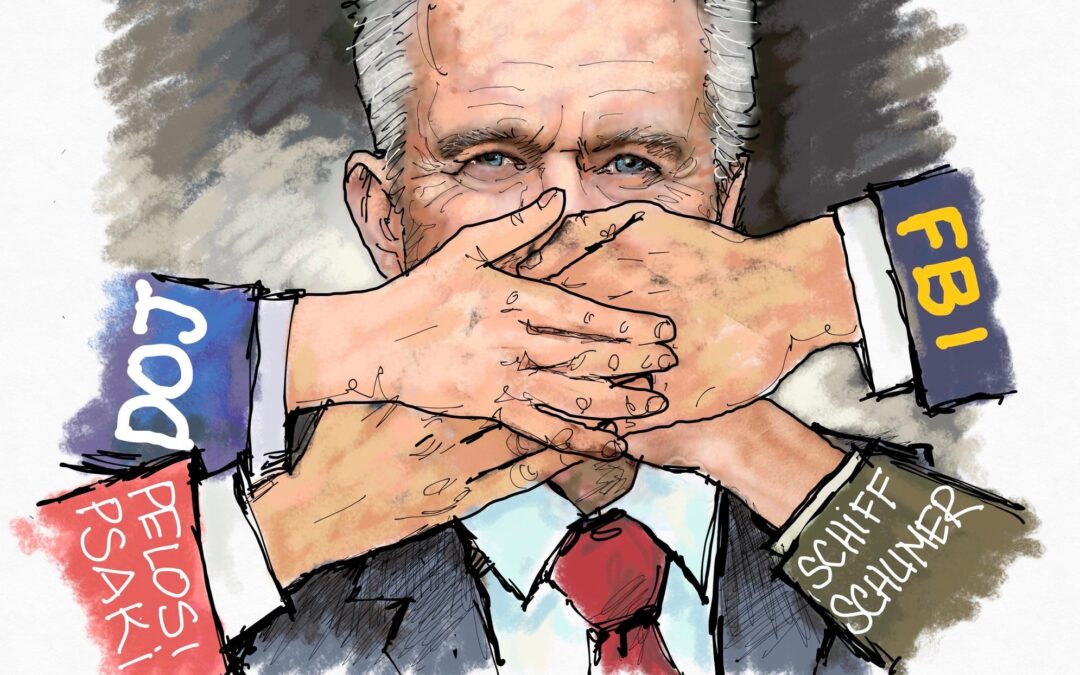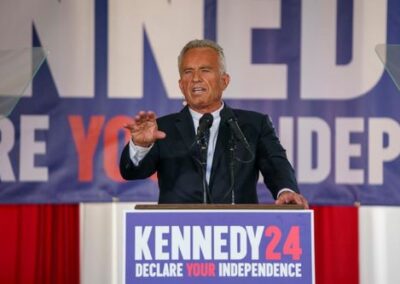Unfortunately, the mainstream media often characterizes him as ‘anti-vax’ or a ‘conspiracy theorist.’ While the vaccine debate is both concerning and factual, it is a topic best left for scientific experts to elucidate.
My enthusiasm for history has long been a significant aspect of my intellectual pursuits. My worldview underwent a transformative shift at the age of twelve when I discovered George Orwell’s work in the library, particularly “1984,” which remains a sobering cautionary tale for the contemporary world. Lessons from the past, as exemplified by Hitler and Mussolini, serve as both a warning to future dictators and an instructive guide for the populace on how to thwart potential successors.
The initial move of any dictator is to control the media. Today, we witness a gradual erosion of our First Amendment rights as ubiquitous security cameras, from traffic lights to street corners and personal devices, compromise our privacy. Anecdotal evidence, such as personal conversations triggering targeted content on electronic devices, raises concerns about the extent of surveillance, infringing upon private moments and conversations.
A recent read, “Conspiracy Theories” by Jesse Ventura and Dick Russell, delves into historical events like Lincoln’s assassination, the Kennedy brothers, MLK, and Malcolm X, presenting facts and posing valid unanswered questions. The book challenges traditional narratives and highlights the dismissal of key witnesses, fostering skepticism about the historical accuracy presented in mainstream education.
The media’s role in shaping narratives extends to television “programs.” For instance, a Netflix movie aimed at children conveyed a positive message but raised questions about the appropriateness of intimate scenes involving gay characters. This instance, coupled with historical events like the Jonestown massacre, prompts contemplation on the potential influence of media and the need for critical evaluation.
While examining the world health landscape, the World Health Organization (WHO) is engaged in discussions, receiving limited media coverage, about a potential global health takeover. This proposition involves new requirements, with countries like Brazil already considering mandatory vaccinations for individuals over five years old to receive government assistance. Such developments underscore the importance of safeguarding individual autonomy and preventing the erosion of democratic principles.
The Children’s Health Defense (CHD) website, spearheaded by Robert F. Kennedy Jr., has provided enlightening insights into various facets of government actions. The realization that ostensibly positive government initiatives may have hidden agendas reinforces the need for vigilant scrutiny.
Despite the challenges posed by powerful entities, I am reminded of my great grandfather’s wisdom: “If you don’t stand for something, you’ll fall for anything.” It becomes imperative to stand up and advocate for a society where all individuals can thrive in the sunlight of true freedom, where unbiased news reporting and a government working for the collective good are the norm. As John Lennon aptly expressed, “You may say I’m a dreamer, but I’m not the only one.”


